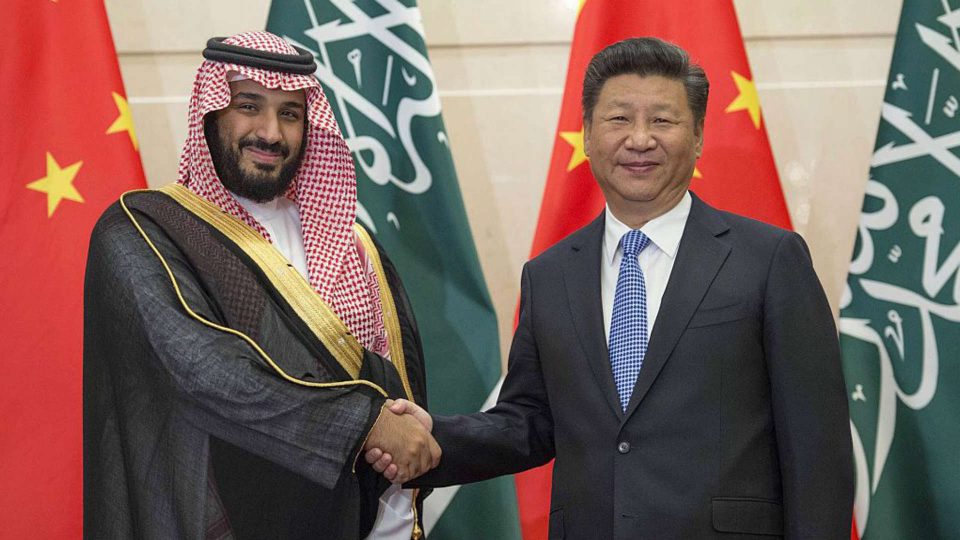On Thursday, during the visit of Chinese President Xi Jinping, Saudi Arabia and China showcased deepening ties through a series of strategic agreements, including cooperation with tech giant Huawei, whose growing presence in the Gulf has raised US security concerns.
King Salman signed the “Comprehensive Strategic Partnership Agreement” with Xi Jinping, a warm welcome in a country building a new type of global partnership beyond the West.
The display contrasted with a low-key welcome in July by US President Joe Biden, with whom relations were drained over Saudi energy policy and the assassination of Jamal Khashoggi in 2018.
The US said on Wednesday that Xi’s visit is an example of China’s efforts to exert influence worldwide and will not change US policy towards the Middle East, given China’s growing power and its ties with Riyadh at an all-time low.
A memorandum was struck with China’s Huawei Technologies Co Ltd on cloud computing and building a high-tech park in a Saudi city, despite US concerns that Gulf allies could face security risks from using the Chinese company’s technology. Despite US concerns, Huawei is building 5G networks in most Gulf states.
Prince Mohammed returned after Khashoggi’s killing and bumped a fist instead of a hand with Biden in July as he faced US anger over oil supplies and pressure from Washington to isolate Russia.
Further boosting their international prestige, Saudi Arabia and the UAE said on Thursday that the crown prince and the UAE president had jointly led mediation efforts that secured the release of US basketball star Brittany Griner in a prisoner swap with Russia. In an op-ed published by Saudi media, Xi said he was on a “groundbreaking visit” to usher in “a new era of ties between China and the Arab world, the Gulf Arab countries and Saudi Arabia”.
Xi added that China and Arab countries would “continue to hold high the banner of non-interference in internal affairs”.
The crown prince echoed the sentiment, saying China opposed any “interference in China’s internal affairs in the name of human rights,” according to Chinese state broadcaster CCTV.
Xi will meet with other Gulf oil producers and a broader gathering of Arab leaders on Friday and said China would try to make the summits “a milestone event in the history of Sino-Arab relations”. Beijing sees Riyadh as “a vital force in a multipolar world”.
Other Gulf countries, such as Saudi Arabia and the UAE, say they don’t choose sides among global powers and are diversifying partners to serve national economic and security interests.
China, the world’s largest energy consumer and a significant trading partner for the Gulf states, has expanded bilateral ties as the region pushes to diversify its economy, fueling US dismay over China’s involvement in sensitive Gulf infrastructure.
On Wednesday, the Saudi energy minister said Riyadh would remain Beijing’s “dependable and reliable” energy partner. The two countries will strengthen cooperation on the energy supply chain by setting up a regional hub in Saudi Arabia for Chinese factories.
State news agency SPA reported that Chinese and Saudi companies also signed 34 deals to invest in green energy, IT, cloud services, transportation, construction and other sectors. It gave no figures but said the two countries would reach an initial deal of $30 billion.







